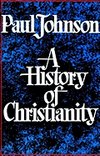
Mummies
Source: Wikipedia. Pages: 92. Chapters: Mao Zedong, Ötzi the Iceman, Eva Perón, Mummy, Jeremy Bentham, Bog body, Vladimir Lenin, Tarim mummies, Maronite mummies, Mummy paper, Buddhist mummies, List of mummies, Manchester Mummy, San Pedro Mountains Mummy,... Viac o knihe
Produkt je dočasne nedostupný
22.35 €
bežná cena: 25.40 €
O knihe
Source: Wikipedia. Pages: 92. Chapters: Mao Zedong, Ötzi the Iceman, Eva Perón, Mummy, Jeremy Bentham, Bog body, Vladimir Lenin, Tarim mummies, Maronite mummies, Mummy paper, Buddhist mummies, List of mummies, Manchester Mummy, San Pedro Mountains Mummy, The Mummies, Kwäday Dän Ts'ìnchi, Alexander Douglas-Hamilton, 10th Duke of Hamilton, Servando Teresa de Mier, The Younger Lady, Chinchorro mummies, Capuchin catacombs of Palermo, Sokushinbutsu, Persian Princess, Elmer McCurdy, Dashi-Dorzho Itigilov, Mummies of Guanajuato, Spirit Cave mummy, Julia Pastrana, Lord of Sipán, Lyuba, Christian Friedrich von Kahlbutz, Mummy forgeries, Hazel Farris, Guanche mummies, Qilakitsoq, Cheddar Man, Virginia Centurione Bracelli, Charles "Speedy" Atkins, Rosalia Lombardo, List of DNA tested mummies, Fet-Mats Israelsson, Mummy of San Andrés, Fire Mummies, Mummy 1770, Murambi Technical School, Plomo Mummy, Jersey Mummy, Luang Pho Daeng, Norwich Anglo-Saxon, Balsam oil, Mallki. Excerpt: Mao Zedong, also transliterated as Mao Tse-tung ·), and commonly referred to as Chairman Mao (December 26, 1893 - September 9, 1976), was a Chinese revolutionary, guerrilla warfare strategist, poet, political theorist, and leader of the Chinese Revolution. He was the architect and founding father of the People's Republic of China (PRC) from its establishment in 1949, and held authoritarian control over the nation until his death in 1976. His theoretical contribution to Marxism-Leninism, along with his military strategies and brand of political policies, are now collectively known as Maoism. Mao is credited with commanding the Long March and leading the Communist Party of China (CPC) to victory against Chiang Kai-shek's Kuomintang (KMT) in the Chinese Civil War, defeating an assortment of powerful regional warlords, and helping repel a Japanese invasion. Mao also enacted sweeping land reform, by overthrowing the feudal landlords and seizing their large estates, before dividing the land up among the people who worked it. Later, through his policies, he laid the economic, technological and cultural foundations of modern China, transforming the country from an underdeveloped peasant-based agrarian society into a major industrialized world power. However, he remains a controversial figure to this day, with a contentious legacy that is subject to continuing revision and fierce debate. He is officially held in high regard in China as a great revolutionary, political strategist, military mastermind, and savior of the nation. Additionally, Mao is viewed as an intellectual, poet, philosopher, and visionary. Conversely, nationwide political campaigns led by Mao, such as the Great Leap Forward and the Cultural Revolution, are blamed for millions of deaths, causing severe famine and damage to the culture, society and economy of China. Moreover, although China's population almost doubled during the period of Mao's leadership (from around 550 to over 900 million), his rule from 19
- Vydavateľstvo: Chronicle Books
- Formát: Paperback
- Jazyk:
- ISBN: 9781150978210


 Anglický jazyk
Anglický jazyk 



 Ruský jazyk
Ruský jazyk 





